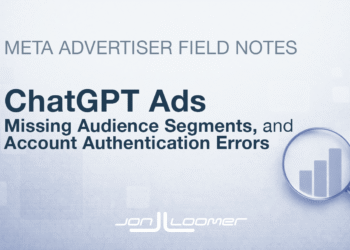Artificial intelligence is no longer a distant concept for the legal profession—it is already embedded in daily practice. A new study conducted by Anidjar & Levine reveals that while AI is transforming workflows and reshaping courtroom advocacy, the profession is grappling with profound questions of ethics, oversight, and public trust. The findings highlight a paradox: lawyers are embracing AI for its efficiency yet remain deeply cautious about its risks.
The Efficiency Revolution
The study shows that 70% of law firms have adopted at least one form of AI technology, with adoption rates climbing steadily across practice areas. The most common applications include:
- Document Summarization: 72% in 2024, projected to rise to 74% in 2025.
- Brief or Memo Drafting: 59% in both 2024 and 2025.
- Contract Drafting: 51% in 2024, expected to reach 58% in 2025.
These tools are not just novelties—they are fundamentally altering how lawyers allocate their time. According to the study, 54.4% of legal professionals identify time savings as the primary benefit, freeing attorneys to focus on strategy, negotiation, and client advocacy.
For example, AI-driven research platforms can scan thousands of cases in seconds, while contract review tools can flag anomalies that might otherwise take hours of manual work. This shift is particularly significant for smaller firms, which often lack the resources of larger competitors. By automating repetitive tasks, AI is leveling the playing field.
The Ethical Dilemma
But efficiency comes at a cost. The study highlights that 74.7% of lawyers cite accuracy as their top concern, with AI “hallucinations”—fabricated or misleading outputs—posing a serious risk. In some cases, these errors have already led to disciplinary action.
- Westlaw AI produced hallucinations in 34% of tests.
- Lexis+ AI, even with advanced safeguards, still showed error rates above 17%.
These statistics underscore the stakes. A single fabricated citation can undermine a case, damage a lawyer’s reputation, and erode public trust in the justice system. The ethical dilemma is clear: how can attorneys harness AI’s efficiency without compromising accuracy and accountability?
Judicial and Legislative Guardrails
The legal system is beginning to impose guardrails. By mid-2025, over 40 federal judges required disclosure of AI use in filings, up from 25 just a year earlier. State bar associations in California, New York, and Florida have also issued guidance mandating attorney supervision of AI-generated work.
Meanwhile, at least eight U.S. states are drafting or enacting legislation to regulate AI in legal services, with a focus on malpractice liability and consumer protection. These measures reflect growing recognition that AI is not just a tool for lawyers—it is a force reshaping the justice system itself.
Public Trust and Client Expectations
The study reveals a striking tension between client expectations and lawyer skepticism:
- 68% of clients under 45 expect their lawyers to use AI tools.
- 42% of clients say they would consider hiring a firm that advertises AI-assisted representation.
- Only 39% of lawyers believe AI improves client outcomes.
This disconnect could shape the competitive landscape. Firms that embrace AI transparently may attract younger, tech-savvy clients, while those that resist risk being perceived as outdated. At the same time, overpromising on AI’s capabilities could backfire if errors undermine trust.
Human Judgment: The Irreplaceable Factor
Despite AI’s growing role, the study emphasizes that human judgment remains irreplaceable. AI can process vast datasets, but it cannot weigh the moral, social, and political dimensions of legal decisions. Transparency, oversight, and ethical responsibility must remain central to practice.
Some legal scholars suggest blind testing—comparing AI-generated arguments against human ones—could help determine whether AI can match or exceed human reasoning. Until then, responsible AI use requires:
- Transparency in how AI is applied.
- Oversight by licensed attorneys.
- Continuous testing to ensure accuracy and fairness.
The Path Ahead
The Anidjar & Levine study concludes that the legal profession is at a pivotal moment. AI is no longer optional—it is becoming a core component of practice. But its integration must be balanced with safeguards to preserve accuracy, ethics, and public trust.
The firms that succeed will be those that treat AI not as a replacement for human judgment, but as a tool to enhance it. In this sense, the future of law is not about man versus machine—it is about how the two can work together to deliver justice more efficiently, ethically, and transparently.
Conclusion
The rise of AI in legal services is not just a story of efficiency—it is a story of ethics, oversight, and the future of justice itself. As the Anidjar & Levine study makes clear, the profession must navigate this transformation carefully, ensuring that technology serves justice rather than undermines it.



![How to create a social media report [free template included]](https://mgrowtech.com/wp-content/uploads/2026/01/social-media-report-350x250.png)











